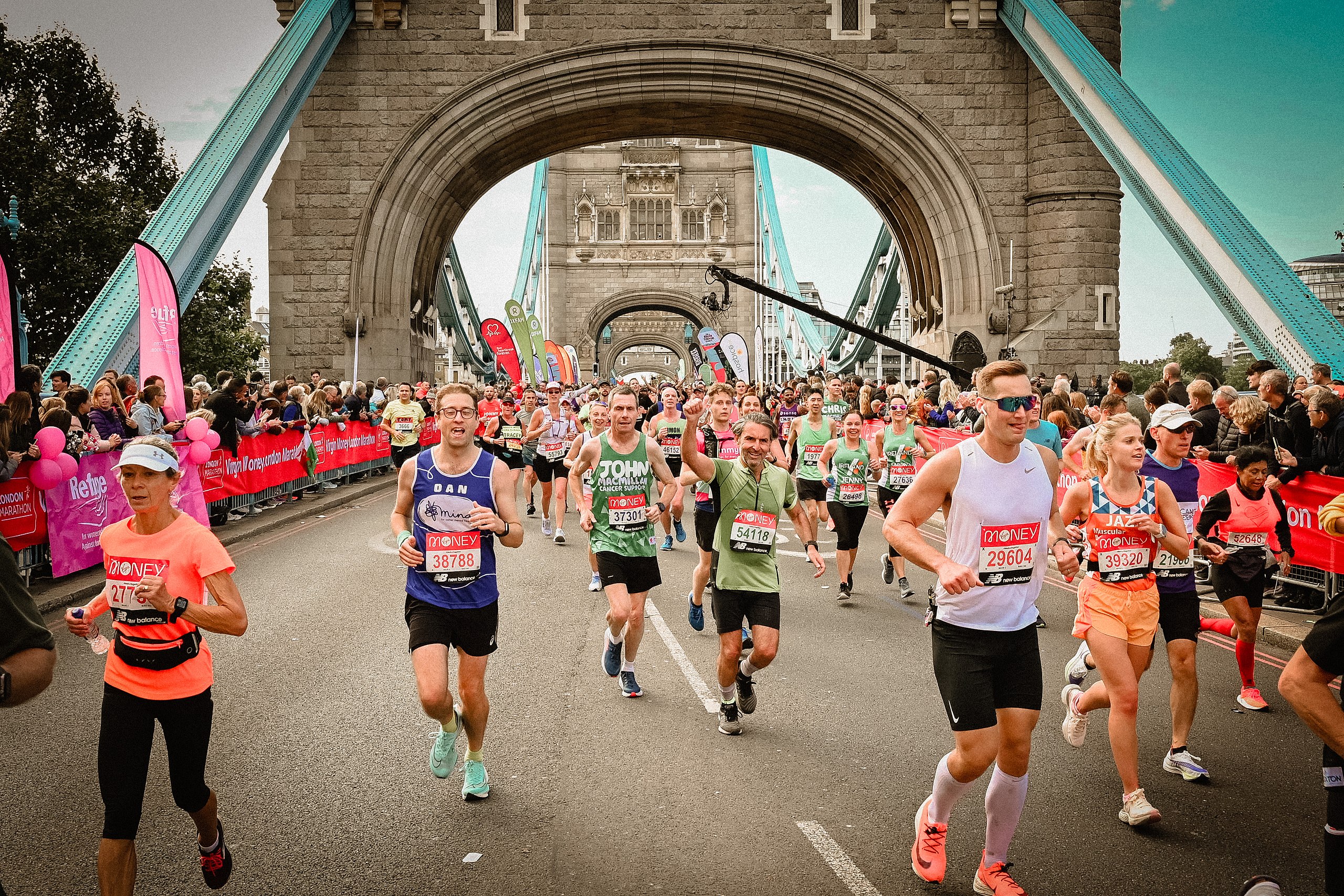You should follow a structured 12-16 week plan that gradually increases weekly mileage whilst incorporating strength training, rest days, and proper nutrition. Most runners make the mistake of only running, which leads to injuries and poor performance. A proper marathon training plan balances long runs, speed work, easy recovery runs, and crucially, strength training to prevent injury and improve running economy.
Living in London gives you brilliant training routes, from Regent's Park loops to longer runs along the Thames. But having access to great running spots doesn't replace having a proper plan. Here's what actually works.
For personal trainers in London, speak to Lizzie Bell on 07590 622020 or get in touch here.
How Many Miles Per Week Should You Run for Marathon Training?
Start where you are, not where you think you should be. If you're currently running 15-20 miles per week, you can safely build to 35-40 miles by race day. The golden rule is never increase weekly mileage by more than 10% per week.
Most marathon plans peak around 40-50 miles per week, with your longest run hitting 18-20 miles about three weeks before race day.
For Londoners, this might mean a Tuesday speed session in Regent's Park, Thursday easy run around Marylebone, Saturday long run from Baker Street down to Tower Bridge and back, plus a Sunday recovery run or cross-training session.
Do You Need Strength Training for Marathon Running?
Absolutely yes. Strength training reduces injury risk by up to 50%. Focus on single-leg exercises (split squats, step-ups), posterior chain work (deadlifts, hamstring curls), and core stability. Two 30-40 minute strength sessions per week is enough, you're not trying to build massive muscles, you're building resilient ones.
Many runners skip this because they think it'll make them "bulky" or slow them down. The opposite is true. Stronger muscles improve running economy (how efficiently you use oxygen), maintain form during fatigue, and protect your joints from the repetitive impact of thousands of steps.
What Should You Eat During Marathon Training?
More than you think. Marathon training burns serious calories, a 10-mile run can burn 800-1,200 calories depending on your size and pace. Undereating is the fastest way to get injured, feel exhausted, and perform poorly. Prioritise carbohydrates around training (they're your primary fuel source), adequate protein for recovery (1.4-1.6g per kg), and don't fear healthy fats.
During long runs over 90 minutes, practice your race-day nutrition strategy. Most runners need 30-60g of carbohydrates per hour, which might be gels, sports drinks, or even jelly babies. Test everything in training, never try anything new on race day.
How Do You Avoid Common Marathon Training Injuries?
By respecting rest days and listening to your body. The most common injuries are runner's knee, IT band syndrome, shin splints, and plantar fasciitis; all caused by doing too much, too soon, with poor recovery. Include at least one complete rest day per week, keep 80% of your runs at an easy conversational pace, and invest in proper running shoes fitted at a specialist shop (there are several excellent ones around Soho and Marylebone).
If something hurts for more than a few runs, see a physio immediately. Pushing through pain turns a minor niggle into a season-ending injury. Cross-training like cycling or swimming can maintain fitness whilst giving your joints a break from impact.
The London Marathon is an incredible experience, but it requires respect and proper preparation. Start your plan 12-16 weeks out, build gradually, fuel properly, and don't skip the strength work. Your future self will thank you at mile 20.
Have a great week
Lizzie








